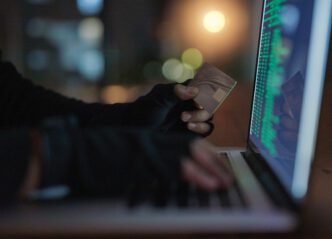Executive Summary
- Carnisha Maurica Rogers was sentenced to 36 months in federal prison for a sophisticated credit scheme and fraudulent acquisition of COVID-19 relief funds.
- Rogers orchestrated a credit scheme from 2017 to 2019, using fraudulently obtained Social Security numbers to open credit lines for merchandise that was then resold.
- In 2021, Rogers submitted a fraudulent Paycheck Protection Program (PPP) loan application using fabricated documents, securing a $20,832 loan that was later falsely forgiven.
Laws and Precedent
- Carnisha Maurica Rogers was sentenced to federal prison after pleading guilty to federal charges including conspiracy to commit wire fraud, false representation of a Social Security number, and wire fraud. These charges stem from a credit scheme and the fraudulent acquisition and forgiveness of funds from the Paycheck Protection Program (PPP), a federal initiative established to provide economic relief during the COVID-19 pandemic, underscoring the U.S. Department of Justice’s prosecution of misuse of federal relief programs.
A Jacksonville woman, Carnisha Maurica Rogers, 31, has been sentenced to 36 months in federal prison for her involvement in a sophisticated credit scheme and fraudulent acquisition of COVID-19 relief funds through the Paycheck Protection Program (PPP). U.S. District Judge Wendy W. Berger also ordered Rogers to pay $108,867.63 in restitution to victims and forfeit $20,832, which directly stems from the COVID relief fraud. Rogers previously pleaded guilty to conspiracy to commit wire fraud, false representation of a Social Security number, and wire fraud in June 2025.
Fraudulent Credit Scheme Uncovered
From November 2017 to September 2019, Rogers orchestrated a scheme involving the fraudulent acquisition of others’ Social Security numbers (SSNs). She and her co-conspirators recruited individuals to open lines of credit at various businesses using these stolen SSNs.
Through this method, the group obtained jewelry and other merchandise. These ill-gotten goods, along with the fraudulently obtained lines of credit, were subsequently resold on social media platforms, generating illicit profits.
Abuse of COVID-19 Relief Programs
In May 2021, Rogers expanded her fraudulent activities by submitting a Paycheck Protection Program (PPP) loan application to an SBA-authorized lender. Her application falsely claimed she operated a legitimate business, providing multiple false statements regarding her purported gross income and operational expenses.
To support her fraudulent claim, Rogers submitted a fabricated IRS Form 1040 – Profit or Loss From Business. This document contained false information about operating expenses, gross income, and wage expenditures for her non-existent business. Based on these lies, her application was approved, and she received a PPP loan totaling $20,832, which she promptly withdrew and spent on personal expenses.
The deception continued in October 2021 when Rogers submitted a PPP loan forgiveness application to the Small Business Administration (SBA). In this application, she falsely claimed to have spent over $18,000 on payroll costs and asserted that the loan proceeds were used exclusively for eligible business purposes. Relying on these misrepresentations, the SBA forgave the entire loan, including accrued interest.
Related Case and Law Enforcement Action
A related defendant, Crystal Denean Harvell, 37, also from Jacksonville, was sentenced in March 2025 to 24 months in federal prison for her role in both the credit scheme and the PPP fraud. Harvell was ordered to pay $131,782.63 in restitution to the victims and the U.S. government.
The Jacksonville Sheriff’s Office and the U.S. Secret Service – Jacksonville Field Office conducted the investigation into these cases. Assistant United States Attorney Kevin C. Frein prosecuted the case, with Assistant United States Attorney Jennifer M. Harrington handling the asset forfeiture.
Justice Served
The sentencing of Carnisha Maurica Rogers underscores the Department of Justice’s commitment to prosecuting individuals who exploit government relief programs and engage in financial fraud. This outcome demonstrates the severe consequences for those who attempt to defraud the public and federal initiatives designed to support legitimate businesses and individuals.








